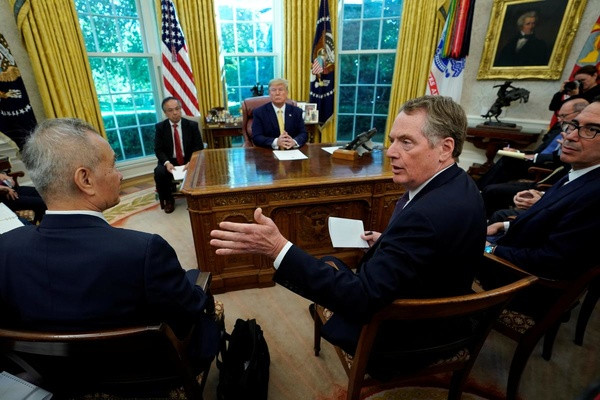Clete Willems, US President Donald Trump's ex-trade adviser, said that the movement to complete phase one of the trade deal was because of fear of economic damage that more tariffs could bring harm to both sides to which he added that because of the 'rising nationalism in US and China,' no comprehensive deal will materialize soon.
There were no signed papers for the "phase one" of the trade deal last week and things were agreed upon only in principle but it did provide a temporary respite from a 15-month old situation that had shaken markets and started fears of worldwide economic stagnation.
Willems, who left his post as deputy director of the National Economic Council in April, said that the Trump administration designed the tariffs so it would have "more impact on China."
He specified that the US' algorithm would make sure that the "initial tariffs maximize the pain" in Beijing.
But he pointed out that the more tariffs there are, "eventually you're going to get to the ones that will hurt the US more than China" and this is what is happening now.
Phase one of the deal has the US postponing indefinitely a tariff increase from 25 percent to 30 percent on the US$250 billion of Chinese imports.
Trump has not yet decided whether to postpone or not the new 15 percent levy on US$160 billion of Chinese goods that include laptops, smartphones, and TVs on December 15.
The US president could waive that 15 percent if the interim deal will get finalized in mid-November, just in time for his meeting with Chinese President Xi Jinping at the Asia-Pacific Economic Cooperation (APEC).
China is standing by its ground that the US lift all additional tariffs on Chinese products as a condition for any trade deal with the reason that the tariffs are hurting both countries.
Willems, who is now a partner at Akin Gump, said that he expects the December 15 tariffs will get delayed as part of the phase one deal.
He believes though that China will not sign any agreement if the tariffs will go up on December 15.
Willems added that though the deal involves purchases of US farm goods, some "structural issues" like better market access for US beef, chicken and pork products will get involved as well.
The other important structural issues that make up the initial bulk of US grievances like weak intellectual property protection for US companies and forced technology transfers will be addressed in later talks.
Still, Willems noted that the political conditions "are not conducive" to a big deal right now due to the nationalist sentiment on the rise in China and to some extent in the US.





